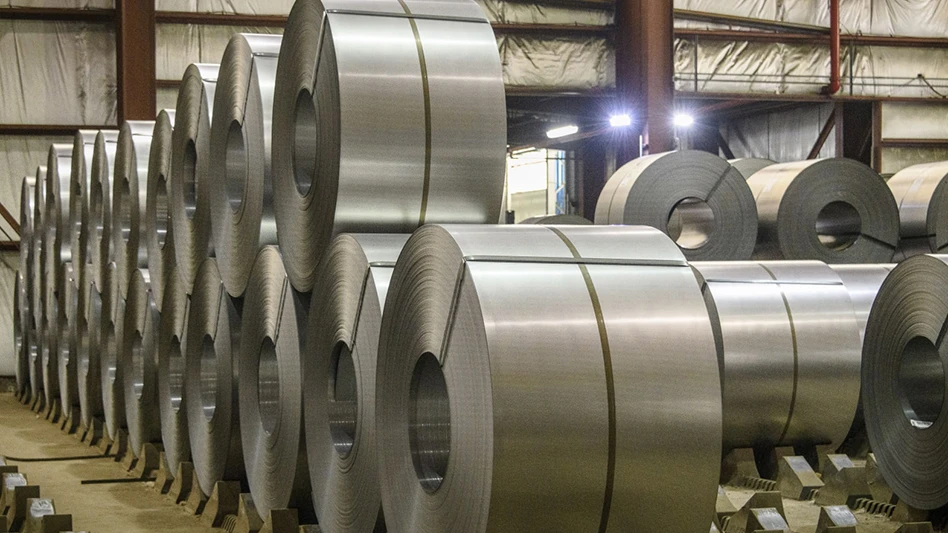Jennifer Pratt enjoyed building a secure shredding business in the Washington, D.C., area during the first half of this decade. After selling that business last year, she knew she wanted to stay in the industry, but also wanted to try out a different business model.
Subsequently, Pratt and business partner Colleen Regan left the Eastern Seaboard behind and started up Coast2Coast Shredding LLC, based in Tucson, Ariz.
The company owns a mobile truck that can serve customers in Phoenix and Tucson, but the focus has been on serving nationwide accounts using a reliable pool of fellow secure shredding companies as subcontractors wherever shredding might be needed.
CAPITAL IDEA
Washington, D.C., with its volumes upon volumes of government documents, would seem to be fertile ground for a secure shredding company.
Pratt spotted the opportunity while working for a recycling company in the D.C. area throughout the 1990s. "After eight years in the recycling industry, I began to see a decline in the volume of paper we were receiving from office buildings due to the fact that so many tenants were now having their documents shredded instead of being recycled," she recalls.
Using less than $50,000 toward initial start-up costs, Pratt founded Capital Shredding, based in Columbia, Md., in 2001. The company’s original workhorse was an International truck outfitted with a generator and a small shredder.
The company flourished, and by the end of 2004 Capital Shredding consisted of two mobile shredding trucks, eight collection vehicles and a 17,000-square-foot facility containing a 100-hp shredder. "By that time, the majority of our business was off-site shredding," Pratt recalls.
Part of Capital’s success was driven by key employee Colleen Regan, says Pratt, who credits Regan with cultivating a thorough understanding of government specifications and contracts—certainly a key field of knowledge in the D.C. area.
Although they enjoyed building the business into one that reached $2 million in annual sales, in August of 2005 Pratt accepted an offer from Cintas to sell Capital Shredding. "We felt by that time the business was growing at a pace we no longer wanted to manage," Pratt recalls. "The days were becoming longer, and it became increasingly harder to keep providing all of our customers the personal service they had grown accustomed to," Regan adds.
| Fork in the Paper Trail |
|
While the document destruction industry has enjoyed several years of growth, Jennifer Pratt and Colleen Regan of Coast2Coast Shredding LLC, Tucson, Ariz., say changes are afoot to which company owners will have to pay attention. Pratt remarks that as the lofty scrap paper prices of 2005 have tumbled, some operators have had to scramble to replace that revenue. "Many companies are relying too heavily on the revenue generated from their paper," she comments. With her background in recycling, Pratt is aware of the fickle nature of the scrap paper market. "I have seen scrap paper prices fluctuate throughout the years. I think that when they do take a dive, a lot of the smaller companies are not going to be able to survive once this revenue is drastically reduced." She adds, "The revenue from paper has to be seen as more of a cushion or a bonus, not a return you can count on." |
Both a geographic non-compete clause and a desire to move to a warmer climate helped spark Pratt and Regan’s decision to start their next venture away from Washington. This time, the duo formed a company together as business partners in the new Arizona-based venture called Coast2Coast Shredding LLC.
"During her employment at Capital, Colleen became very knowledgeable in every aspect of the business," says Pratt. "Although she may have been an employee, I viewed her as an equal and learned from her as well. We knew our combined knowledge and experience would be a great fit for our new venture."
FEDERAL FOCUS
Without skipping a beat after the sale of Capital Shredding, Pratt and Regan formed Coast2Coast Shredding LLC that same summer, setting up an office in Tucson, Ariz.
The duo also purchased a mobile shredding truck from Vecoplan LLC, which it keeps parked in the Phoenix area to serve on-site shredding customers in that city. "We are currently working very closely with Pacific Paper," says Pratt. "We keep our truck at their facility, and they purchase our shredded material," she notes.
The focus of Coast2Coast Shredding, though, is not limited to serving customers in Phoenix and Tucson. Rather, Pratt and Regan have drawn upon their expertise in serving federal government clients to set up national, regional or one-facility contracts with federal agencies located outside of the Washington, D.C., area.
"Colleen has worked with many government agencies in the D.C. market and has utilized this experience to help secure contracts with other government agencies that are not in the D.C. market," says Pratt.
While the company solicits a variety of work, the ideal customer is a federal agency generating a steady flow of documents to be purged or shredded. "Most of what we try to concentrate on is recurring business," says Regan.
An advantage that Coast2Coast enjoys is that both Pratt and Regan have top-secret federal government clearance, and the Vecoplan truck they have purchased can shred documents to rigid Department of Defense (DOD) standards. "You have to be able to shred paper to 3/32nd of an inch to meet DOD requirements," notes Regan.
More commonly than using its own truck, though, the company will serve its clients through a network of secure shredding companies that operate as subcontractors for Coast2Coast.
STRONG ALLIANCES
"The majority of our operations are done throughout the United States by subcontracting out to other NAID (National Association for Information Destruction) members to help us service our customers," says Pratt.
When working with a federal agency that requires regular service or one that is scheduling a file purge, Regan says, "I go to the NAID Web site or I may already know of a NAID company in that area, and we make subcontracting arrangements."
Pratt and Regan say the network of NAID-member secure shredding companies has been largely receptive when approached. "Most independent companies are glad to do business with us and view it as work they otherwise would not have," says Pratt.
Coast2Coast worked with its attorney to craft a master subcontractor agreement designed to protect Coast2Coast’s interests, while also providing a profit to the subcontractor involved.
The pricing structure is often dictated by the federal government’s General Services Administration (GSA), according to Regan. "Some of the people we work with are curious as to why they can’t charge more, but these jobs often tend to involve GSA pricing," she says. "We certainly don’t do it to squeeze the subcontracting company, but we all have to work on a small margin." Regan notes, though, that the subcontractors are typically able to keep the proceeds from the sale of the shredded paper.
After several months, Pratt and Regan believe the effort has gone well. "A lot of NAID-member companies look for these kinds of relationships and the chance to work together," says Pratt. She adds, "Our plans are to continue to work with subcontractors while staying fairly small in Phoenix."
TEACHING SKILLS
Another opportunity that Pratt and Regan will pursue will be as consultants to smaller and independent secure shredding companies. The duo has already started to work with some clients.
"We feel that starting and growing a successful business in Washington, D.C.—one of the most competitive markets in the country—qualifies us as knowledgeable consultants in the document destruction industry," says Pratt.
Pratt says entrepreneurs entering the field will need to cultivate a variety of skills to succeed. "I think you need to have some sort of sales background as well as the ability to wear many hats during the day," she comments. "But the sales attitude is important. Those who succeed are those who do not wait around for someone else to ‘make it happen.’ A focus on sales has to be the backbone to start the company.
"You also need to understand that employees are the backbone of the company and if you don’t treat them like family, you are making a big mistake," she adds.
At the same time one is taking care of employees, customers must also receive a great deal of attention. "Every customer is important and service is everything," says Pratt. "If you can’t offer customers great service, somebody else will!"
A noteworthy change is the presence of consolidators and well-capitalized firms like Iron Mountain and Cintas offering a new form of competition.
The growth of such entities, as well as the continued interest of new entrepreneurs, has created a crowded market. Consolidators and established recyclers with deep pockets can also lower regional price structures. "We’ve seen situations such as companies offering on-site shredding at 5 cents per pound," says Regan. "It’s probably not wise to bid on that and lose money."
Even in the face of such competition, the duo says that independent operators can survive and thrive in most cases. "This is a service industry, and many of these bigger operations turn over employees a lot faster and can’t give customers a desired level of personal service," says Pratt.
In addition to serving government clients, Pratt and Regan see a bright future as consultants to their fellow entrepreneurs. "We are a small, woman-owned company, but we will continue to work with other NAID members throughout the country to help them compete with the big boys."
The author is editor of Secure Destruction Business and can be contacted at btaylor@gie.net.

Explore the April 2006 Issue
Check out more from this issue and find your next story to read.
Latest from Recycling Today
- Fitch Ratings sees reasons for steel optimism in 2025
- P+PB adds new board members
- BlueScope, BHP & Rio Tinto select site for electric smelting furnace pilot plant
- Magnomer joins Canada Plastics Pact
- Out of touch with reality
- Electra names new CFO
- WM of Pennsylvania awarded RNG vehicle funding
- Nucor receives West Virginia funding assist





